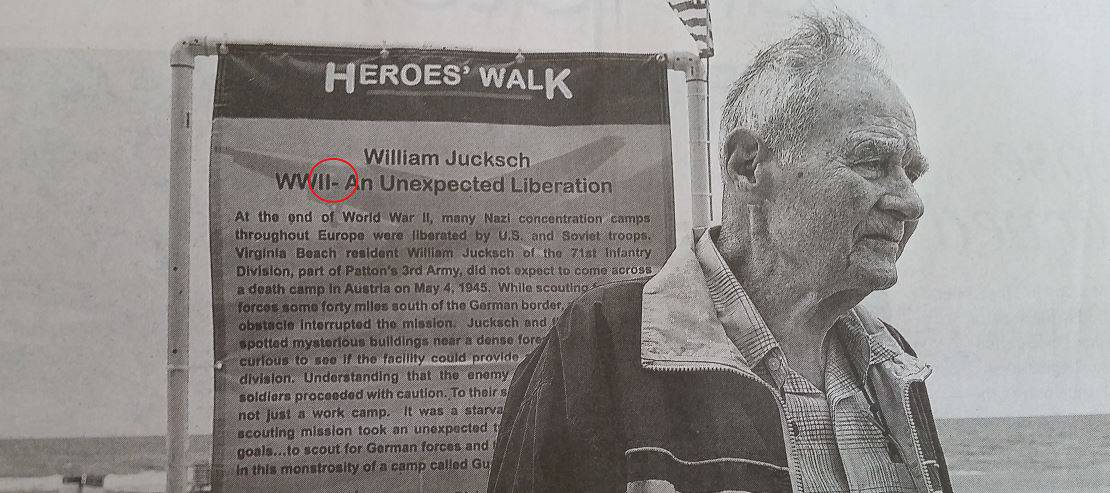The Ugliest Way to Use a Hyphen


I recently opened my local newspaper, The Virginian-Pilot, to find a touching story of William Jucksch, 89, who helped to liberate a Nazi death camp during World War II under the direction of General George Patton.
Students from a local high school remembered Jucksch and his wartime valor with a banner in a well-traveled section of the city. Everything about the banner looked great except for one tiny detail.
The hyphen.
See my red circle in the photo? The students wrote “WWII- An Unexpected Liberation.”
You might think, “Yea, I see the hyphen. What’s the big deal?”
A hyphen right up against a word looks sloppy. It can almost seem like it’s there by mistake and that the person forgot to put a space after “WWII.”
OK now you might think, “Come on. Give these high school kids a break. They did a wonderful project about our military and its liberation of a concentration camp. Does the hyphen really matter?”
Yes, the hyphen matters. In fact, I’d argue the seriousness of the topic demands cleaner writing.
Quick note: To use the image from the newspaper, I had to ask permission from Randall Greenwell, the photographer at The Virginian-Pilot who took the picture. You must, MUST check with the journalist who produced the work before it can appear on your own blog or website. It’s not enough to write “Courtesy of ____”
All right. Let’s fix the line and make it look better.
In my opinion, there are two ways to improve “WWII- An Unexpected Liberation.”
1. “WWII — An Unexpected Liberation”
2. “WWII: An Unexpected Liberation”
Option #1 is two dashes with a space on either side. A single dash feels too thin. Two give it “umph.”
Option #2 is a colon. Both choices look better than “WWII-” because they’re more orderly.
Whenever you need to separate words for emphasis (ex: in a bulleted list or main title), look out for the misplaced hyphen and make the correction.
OK, another lesson. This time it’s about hyphens and ages.
We use hyphens if the adjective precedes the noun. For example:
– I am a 25-year-old man
If we use the age as a noun, the hyphens remain:
– I am a 25-year-old
But if the age is used as an adjective after the noun, the hyphens go away, and we add an “s”:
– I am 25 years old
I say it time and again, but the details make the difference. Clean up the style mistakes, and everything you write will look more polished.
Here are a three additional writing lessons:
– Why You Need to Stop Using Adverbs
– 4 Sneaky Words That Diminish Everything You Write
– 7 Writing Mistakes You Must Fix in Your 20s
Any other questions about hyphens?
Share below!
Featured photo: Randall Greenwell, The Virginian-Pilot



Related Articles
January 8, 2015
How to Transform Any Sentence So It Jumps Off the Page
Be like Stuart Scott and go one layer deeper.
Read More
February 15, 2018
9 Words That Make Any Professional Look Weak
Like hitting yourself in the face.
Read More
September 12, 2017
How Every Leader Should Write a Handwritten Thank-You Note
Details define leaders.
Read More